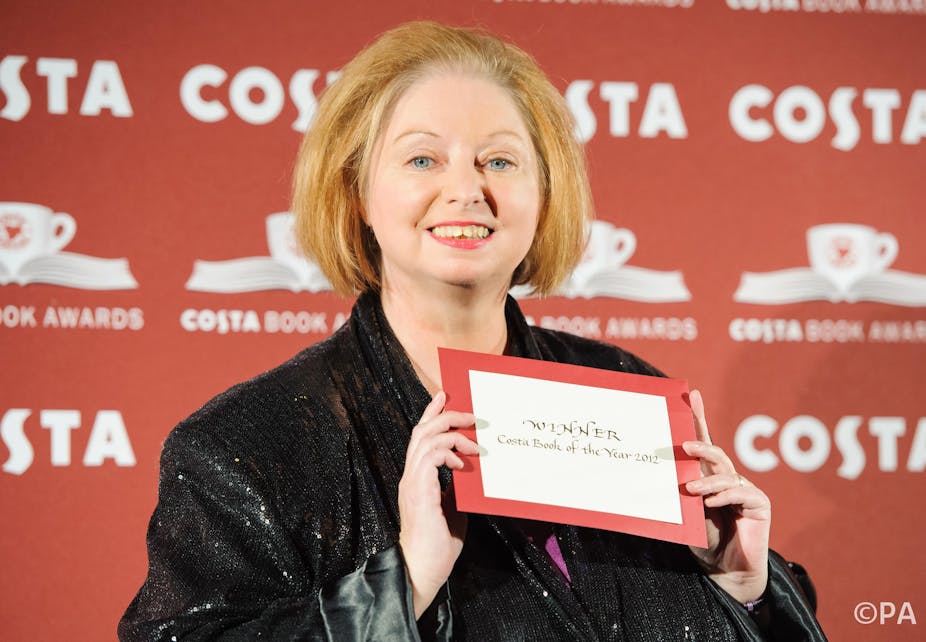The Costa book awards shortlists have been announced and the one thing that dominates people’s first reactions has been the fact the fiction shortlist is made up entirely of women authors. Is the response an unqualified “hurrah”? Is it heck. The inevitable question has been: in the light of this, do we really still need literary prizes just for women authors?
Yes, we really do.
For one thing, it’s a little early to be declaring the establishment of female dominance. Yes, the Costa shortlist for fiction happens to be all-female this year, but that is only one category among five and the ratio of the other shortlists tell a slightly different story. There’s a three-to-one male to female split in the shortlists for first novel and poetry while the split for biography and children’s writing is two apiece.
You can regard the all-female novel list as tipping the balance, or as highlighting the male dominance elsewhere.
Turning to the Man Booker Prize doesn’t help. Yes, this year and last the winner was female; and, yes, if you look back over the past ten winners you’ll find five women and five men – but venture further back and male dominance creeps in. Could it be that some new force prompted a shift in the Booker profile?
The Orange Prize (now Bailey’s) was established to counteract male dominance in literary awards, specifically in the Booker Prize shortlist of 1991. It is this prize that everyone has in mind when they refer to all-women literary prizes. Prizes? Really? Oh, just the one then.
The Orange/Bailey’s prize has been running since 1996; since 1996 people have been trying to get it abandoned. The wrangle showed no sign of letting up as the prize hit its tenth anniversary and as the reaction to this Costa shortlist shows, it’s still going strong today.

We might defend the existence of women-only competitions on the grounds that they showcase the different kinds of writing by women and so help fend off the notion of certain types of book being typically female. Ah, might come the repost, no need for that now. The current Costa prize list proves women can write in all sorts of ways, as they appear in all the Costa sub-categories: First Novel, Novel, Biography, Poetry and Children’s Book and have also won the Costa Short Story prize as well. More proof that women-only awards are unnecessary. But that’s still not the point.
We’re asking the wrong questions here. Here are some better ones: Why does an all-female list still draw comment? Doesn’t such comment betray surprise and a lingering assumption that best equals male? Why the hostility to an all-woman award anyway?
Here’s an even better question. Rather than demanding: “Do we still need women-only awards for fiction?” consider what abolishing such prizes means.
To say: “Bye-bye, Orange. Cheers, Bailey’s – thanks but we don’t need you any more” isn’t a happy assertion of equality, it is an act of deliberate erasure. The authors would still be there, some of them might even win the Booker or the Costa, but the debates stirred up by the simple existence of the woman-only award would be rubbed out, forgotten, eradicated and buried under the guise of declaring the battle won. Suppressed is the term that comes to mind.
Joanna Russ has it right at the end of her novel The Female Man (written in 1970, published 1975 by Women’s Press, a fact worth pondering in itself) which refers to the fate of feminist writing. As she sends her novel out into the wide and doubtless hostile world, she encourages it to look forward to the day it will rest unnoticed and probably unread on the coffee-table. The final words of the book are:
Do not get glum when you are no longer understood, little book. Do not curse your fate. Do not reach up from readers’ laps and punch the readers’ noses.
Rejoice, little book!
For on that day we will be free.
As long as female-only lists provoke comment, snide or laudatory; as long as people even notice that a list is made up of women authors only; so long the value of the women-only prize continues. Stirring it up is what they are for.

